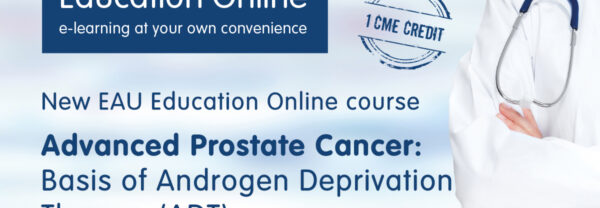EAU presents at the CAU annual meeting: understanding the side-effects of ADT
International cooperation between various urological associations was high on the agenda of the 17th Annual Meeting of the Chinese Urological Association.
October 2010- International cooperation between various urological associations was high on the agenda of the 17th Annual Meeting of the Chinese Urological Association. The meeting takes place on 14-17 October 2010 in Xi’an, China and is attended by more than 3000 urologists from various regions of this country.
The plenary session opened with a speech of Prof. Per-Anders Abrahamsson, EAU Secretary General, who said that scientific ties between China and Europe are growing stronger and that in the future more close cooperation will be fostered by both sides. In his lecture “Update on androgen deprivation therapy 2010”, he discussed the benefits and the challenges of this treatment modality both in terms of its universal application and regarding some of its China-related aspects.
Abrahamsson mentioned that this year much of the scientific discussion has been related to the development and testing of various new agents. He also mentioned that there are many concerns about the efficacy of intracellular testosterone suppression and better selection of indications for ADT. He then continued to discuss in details a topic, which, according to him has recently received much exposure in the field of scientific and practical urology – a better understanding of ADT side-effects. This increasingly improving understanding enables urologists to limit and control the rather severe morbidity of the therapy, such as an increased risk of cardio-vascular death, serious bone loss.
He mentioned that the management of ADT side-effects is directly related to the choice of treatment modality and timing, risk stratification, prevention and life-style intervention. With regard to the latter, Abrahamsson mentioned that various precautionary measures should be strongly advised to the patient – including retaining from smoking which, he said, is a serious problem among the Chinese men. Among other precautions on which the patient should be thoroughly educated by the urologist – a regular physical exercise, the so-called cerebral training, diet, cardio-vascular evaluation, the monitoring of glycemia and serum lipids as well as the use of cholesterol-lowering agents.
Abrahamsson went on to discuss the update in the field of intermittent androgen deprivation therapy, stating that currently evidence from clinical trials is poor. He mentioned that there is only one III-phase mature study so far and that there are no studies which thoroughly investigate the quality of life.
“In IAD there are more questions than answers today,” he concluded, “We still need to determine how to select the patients better, when to stop and resume the therapy and what kind of therapy is suited for what kind of patient.”
“It is also important to consider the means of selection of good prognostic patients,” he added, stating that the IAD is still considered today as an experimental approach, which is also indicated in the EAU Guidelines.


